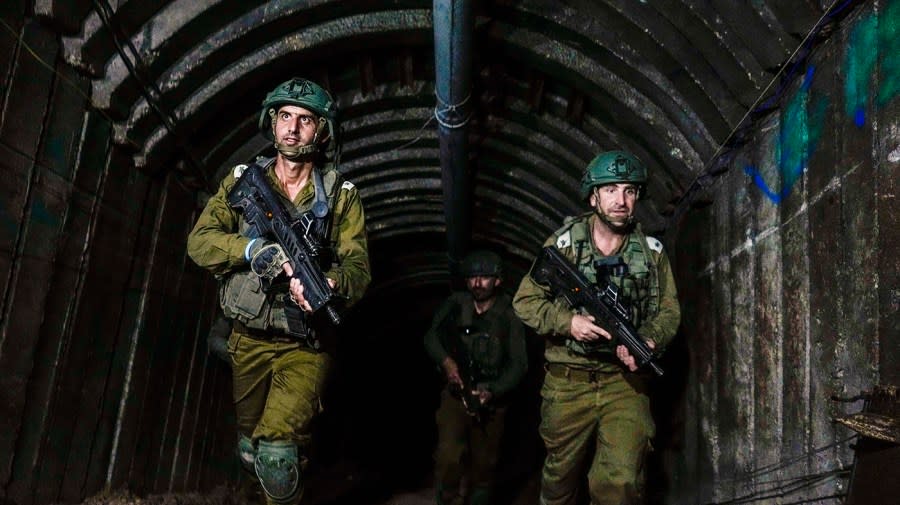Israel sets Ramadan deadline for feared Rafah invasion

Israeli officials appear to have set a deadline to invade the southern Gaza city of Rafah — the largest refugee camp in the coastal territory — for the Muslim holy day of Ramadan on March 10.
Benny Gantz, a member of the Israeli war Cabinet, delivered an ultimatum at a Sunday event with the Conference of Presidents of Major American Jewish Organizations, an umbrella group for the American Jewish community.
“The world must know — and Hamas leaders must know — that if by Ramadan the hostages are not home, then the fighting will continue, including in Rafah,” Gantz said at the event.
Israel has argued it must move into Rafah, which hosts more than a million Palestinians sheltering from the war, to ensure the complete military defeat of the Palestinian militant group Hamas.
But the looming offensive is spurring major concerns from human rights groups and emergency responders on the ground, who warn that any invasion of Rafah could trigger a huge loss of civilian life and upend humanitarian efforts in the Gaza strip.
Rafah, which borders Egypt, is the only place where humanitarian aid is consistently entering Gaza, and Israeli military operations there could hinder what few basic necessities many Palestinian civilians have access to, including food, water and medical aid.
“Military operations in Rafah could lead to a slaughter in Gaza,” said Martin Griffiths, the U.N.’s emergency relief coordinator, in a statement last week. “They could also leave an already fragile humanitarian operation at death’s door.”
To address those concerns, Israeli Prime Minister Benjamin Netanyahu said he ordered his military to draft a plan to evacuate civilians before the invasion. Israel’s main ally, the U.S., has backed a move into Rafah, but only if a plan is created to keep civilians safe.
Speaking at the same conference as Gantz over the weekend, Netanyahu said it was necessary to root out Hamas everywhere they are hiding, arguing “we cannot leave a quarter of Hamas’s terrorist battalions intact.”
“Once you destroy the battalions, there is no organized command and control structure,” he said. “You’re left with individual terrorists, which we mop up with ground action.”
Although military and regional political analysts warn that Hamas represents an ideology and will be extremely difficult to wipe out, Israel insists the group’s military capabilities can be degraded, and Netanyahu has said victory is within reach.
Israeli troops invaded Gaza a few weeks after Hamas launched a deadly Oct. 7 attack in southern Israel, kidnapping 240 people and killing some 1,200. More than 100 hostages remain in Gaza.
Israel’s military has since swept across nearly the entire Gaza Strip, including in the north and central-southern areas, where forces are wrapping up operations in the city of Khan Yunis. The war so far has killed more than 29,000 Palestinians, including both combatants and civilians, according to Gaza health authorities run by Hamas.
With the Rafah operation imminent, Israel is facing pressure from the Biden administration to protect civilian lives with an evacuation plan.
“Without that credible plan, a major operation in Rafah would be a disaster,” White House national security spokesperson John Kirby said last week.
Meanwhile, Arab neighbors are pushing Netanyahu not to invade the refugee camp. Egyptian officials have reportedly threatened to shatter a decades-old peace treaty with Israel if troops move into Rafah, which could send Palestinians over the border and into Egypt and possibly displace them permanently.
Netanyahu said over the weekend that he will not “surrender to any pressure.”
“Whoever wants to prevent us from operating in Rafah is telling us in effect to lose the war,” he said. “I will not allow this.”
For the latest news, weather, sports, and streaming video, head to The Hill.


